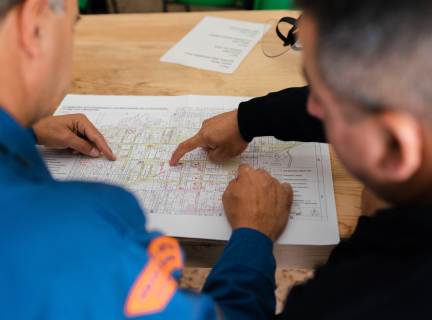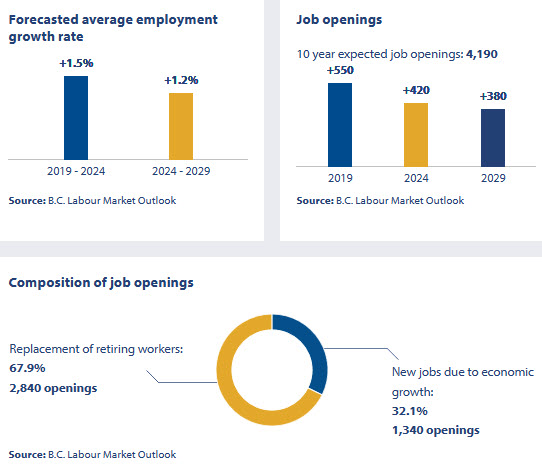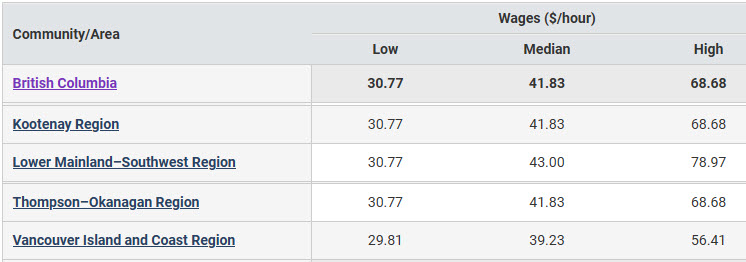Working as a Civil Engineer

Industry Overview
There is strong demand for qualified and experienced civil engineers in BC. There is a large and growing need to replace retiring engineers. Upcoming major projects are also increasing the demand for these workers.
Job Outlook in BC
Civil Engineers

Chart from WorkBC
WorkBC provides job openings in BC regions from 2019-2029:
Sources: WorkBC Career Profiles, Career Cruising profile for Civil Engineer
Types of Employers
Civil engineers work for:
- engineering consulting companies
- private sector manufacturing and construction companies
- all levels of government
- many other industries
- may be self employed
You often work in a multidisciplinary environment. This experience helps you acquire knowledge and skills that may allow you to practice in related areas of science, engineering, urban planning, sales, marketing, or management.
Salary
The median annual salary for civil engineers in BC is $92,246. Senior engineers or those in management positions may earn more.
Your salary is affected by your level of education. If you have a bachelor’s degree in engineering you tend to earn less than if you have a master’s degree or PhD. If you earn a master’s degree in business administration (MBA), you also tend to earn more.
In addition to your salary, full-time civil engineers often receive benefits such as pension plans, dental coverage, sick leave, and paid vacations. You may receive regular, performance-based bonuses that can increase your annual income.
Sources: WorkBC & Career Cruising
In BC regions, you can expect to make:

Source: Job Bank, Wage Report
Working Hours
You generally work between 8 and 10 hours a day, 40 to 50 hours a week.
You may have to work nights and weekends if an important deadline is approaching or if an urgent construction problem arises.
Source: Career Cruising database

